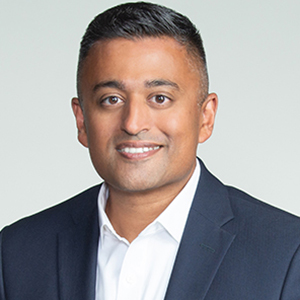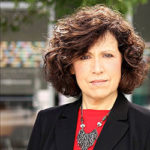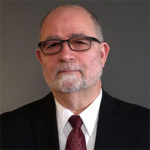Online Master of Science in Health Communication Concentration in Visual & Digital Health Communication
The online MS in Health Communication (MSHC) concentration in Visual & Digital Health Communication at Boston University’s Metropolitan College (MET) examines the impact of the communication technology revolution on the field of healthcare marketing and communication.
Wearable technology for fitness, health, and nutrition and the rise in AI-enabled medical equipment, anti-aging services, and alternative therapies are changing the face of the healthcare industry. A report by Technavio shows that the value of the global health and wellness market is poised to grow by $1,299.8 billion through 2024, while the impact of digital technology in healthcare will continue to reverberate, with venture funding for health tech innovators at $14 billion in 2020 and expected to increase, according to Deloitte. According to a report by Hootsuite and We Are Social, the number of active social media users is in the billions—and growing exponentially. With more than half the world’s population using social media, and with such rapid and continued expansion, it is essential to harness the power of this tool in your healthcare marketing and communication efforts.
Savvy communicators, marketers, and healthcare providers recognize that it takes effective storytelling and strategic social media practices to capture the engagement and participation of patients, consumers, or a desired target audience. How users experience social media, websites, mobile apps, videos, and branded content can make—or break—the success of an otherwise well-defined health campaign or project.
The Visual & Digital Health Communication concentration delivers the fundamental principles of design and how to apply them to the creation of powerful health education and delivery application tools, such as infographics, data visualization graphics, videos, websites, mobile apps, and branded content. In addition, you will examine how social media is used in healthcare and why using it effectively and efficiently has become a necessary skill for many healthcare professionals.
Students who complete the master’s degree in Health Communication will be able to:
- Employ communication strategy, methods, and technology to communicate information, influence audiences, or affect change on health-related topics and issues.
- Evaluate the value and significance of traditional, social, and digital media practice in the health communication field.
- Demonstrate competence in communicating about healthcare, including how to develop purpose-driven, audience-specific materials.
- Understand and apply ethical and socially responsible health communication practices and strategies that consider privacy, regulatory, and legal issues specific to the healthcare industry.
- Interpret and apply basic communication research fundamentals to the field of health communication.
- Analyze, synthesize, interpret, and present health and scientific information using clear and concise messaging for public, media, and/or stakeholder consumption.
In addition, those who complete the concentration in Visual & Digital Health Communication will be able to:
- Employ design and use social media strategies in health messaging to educate diverse populations, build brand reputation, and manage threats in a crisis—within the bounds of patient privacy, copyright, and regulatory considerations.
- Demonstrate proficiency in creating digital images and visual assets—including infographics, branded content, video, data visualization graphics, webpage, and mobile page design—that purposefully and ethically help bridge digital divides in health education and comprehension.
Awards & Accreditations
The course Visual Communication in the Digital Health Age (MET HC 762) received the 2017 Blackboard Catalyst Award for Teaching & Learning—a global honor recognizing excellence in delivering students a flexible, innovative online learning experience.
Silver Award for Distance Learning Programming, U.S. Distance Learning Association (USDLA), 2010
Why Choose BU’s Master of Science in Health Communication?
- Courses are taught by experienced health professionals and faculty experts from across Boston University, including the College of Communication, School of Public Health, and Metropolitan College.
- BU’s program is unique, offered 100% online with asynchronous learning, while integrating communication and healthcare content in each course.
- Enjoy an exceptional 15:1 student-to-instructor ratio, ensuring close interaction with faculty and access to support.
- The Health Communication master’s program provides a global community of experts and peers, as well as unparalleled academic resources available to students 24/7.
- All applicants are automatically considered for merit scholarships, and admitted students are nominated based on eligibility.
- You can earn the MSHC degree with a concentration in Visual & Digital Health Communication by completing the Graduate Certificate in Foundations of Health Communication and the Graduate Certificate in Visual & Digital Health Communication.
Career Outlook
Advertising, Promotion, and Marketing Managers
6% increase in jobs through 2029
$141,490 median annual pay in 2020
Public Relations Specialists
7% increase in jobs through 2029
$62,810 median annual pay in 2020
Medical and Health Services Managers
32% increase in jobs through 2029
$104,280 median annual pay in 2020
Health Educators and Community Health Workers
13% increase in jobs through 2029
$48,140 median annual pay in 2020
Bureau of Labor Statistics, U.S. Department of Labor, Occupational Outlook Handbook (last modified April 9, 2021)
The impact of digital technology in healthcare will continue to reverberate, with venture funding for health tech innovators at $14 billion in 2020 and expected to increase.—Deloitte,
Trends in health tech investments (February 26, 2021)
Tuition & Financial Assistance
Money Matters
Boston University Metropolitan College (MET) offers competitive tuition rates that meet the needs of part-time students seeking an affordable education. These rates are substantially lower than those of the traditional, full-time residential programs yet provide access to the same high-quality BU education. To learn more about current tuition rates, visit the MET website.
Financial Assistance
Comprehensive financial assistance services are available at MET, including scholarships, graduate loans, and payment plans. There is no cost to apply for financial assistance, and you may qualify for a student loan regardless of your income. Learn more.
Curriculum
Boston University’s online Master of Science in Health Communication consists of eight required online courses (32 credits) and can be completed in as few as 16 months of part-time study.
Courses
Core Courses
(Four courses/16 credits)
METHC550 US Healthcare System
This course provides students with basic knowledge of how the health care system in the U.S. is structured, and the policies, stakeholders and complexities impacting access to care, costs, quality and equity among various populations. Drawing on multiple views and opinions, students build on their perspectives as they critically analyze pros and cons of health system fundamentals. Students then apply their knowledge to a series of practical written assignments that help build a strategic plan for improving the health outcomes of an underserved population in their home state. An emphasis is placed on written and oral delivery of final project campaigns.
Please note: This 4-credit course meets over a 7-week period. Students should expect about twice the weekly workload of a 14-week course. [4 credits]
METHC559 Health Communication Principles and Strategies
This foundational course examines and bridges the theory and practice of interpersonal, organizational, mass communication, and digital media relevant to the professional communicator and health practitioner alike. It reviews strategies of persuasion, the relationship between attitudes and health behavior through the lifespan, and the changing nature of health, illness and health delivery in local and global arenas. Students consider how the Social Determinants of Health (where we live, learn, work and play) impact health behaviors and outcomes for diverse populations. Starting with the history of health communication, students gain insight into the evolution of this emerging discipline, from public health education to its broader place in the marketing mix through recent decades. Guided by case studies, research and analysis, students explore the health communication cycle and strategic planning process using frames, channels and tools best suited for reaching behavioral, social, and organizational objectives. The course shifts from theoretical to practical, giving students hands-on experience developing a strategic health communication campaign that considers culture, age, gender and health literacy, to effectively -- and measurably -- influence health outcomes for its intended audience.
Please note: This 4-credit course meets over a 7-week period. Students should expect about twice the weekly workload of a 14-week course. [4 credits]
METHC560 Research Methods for Health Communication
There is a growing demand for professionals with the skills to collect, analyze and interpret data. This course prepares students with essential knowledge of primary research methods, and how to apply them -- accurately and ethically -- to the practice of health communication. Beginning with the basics of research design and evaluation, the course progresses through qualitative, quantitative and mixed methods, survey design, descriptive statistics, focus groups and other approaches, with the goal of helping health communication professionals create meaningful, data- driven strategies, stories and content. Students will practice analyzing, interpreting and writing about various health studies presented throughout the course. Also emphasized is the application of research to advertising messaging and public relations strategies.
Please note: This 4-credit course meets over a 7-week period. Students should expect about twice the weekly workload of a 14-week course. [4 credits]
METHC561 Writing for Health
Effectively communicating knowledge, methods, language and terminology from the complex fields of health, science and medicine- and writing about them plainly- requires an advanced command of language, and proficient use of health literacy principles. If writing does not come naturally to you, this course will introduce you to those health literacy principles, as well as formats and processes for developing materials with confidence. If you're a more experienced writer, get ready to hone your skills using best practices for creating various kinds of health content. Throughout the course you'll analyze different audience needs and refine writing strategies, style, voice, and vocabulary to accommodate each audience. You'll also practice essential writing qualities, including clarity and brevity, alongside advanced grammar, sentence structure and writing mechanics. Assignments include writing, revising, and editing clear, accurate, audience-appropriate content for a journalistic news report; a patient education print brochure; narrative feature storytelling; a health-related blog; scriptwriting for a visual public service announcement, and social media writing to promote your content
Please note: This 4-credit course meets over a 7- week period. Students should expect about twice the weekly workload of a 14-week course. [4 credits]
Visual & Digital Health Communication Concentration Requirements
(Four courses/16 credits)
METHC762 Visual Communication in the Digital Health Age
Over the past two decades, the power of visuals in learning and retention has been increasingly recognized -- attributing as much as 80% of retention to information that is visually communicated. In a recent study, 85% of working professionals agreed that creative thinking is critical for problem solving in their career, and 71% say creative thinking should be taught as a course, like math and science. The efficacy of the use of visual symbols has also been recognized for bridging language barriers in health care settings. This course provides health communication professionals the fundamental principles of design and how these relate to effective communication, particularly in health education and delivery applications. Course lectures and resources will guide students from visual design theory, straight through content creation and measuring effectiveness of visual messaging. Students will explore various media and tools used to create digital images and get hands-on practice in the image editing process. Topics include conceptual design, critical thinking in the creation of practical design, how design relates to industry, human perception and the visual process, and the use of symbols for immediacy and to bridge cultural and literacy divides. In addition to exploring popular digital vehicles for visual storytelling, such as infographics, data visualization, video and mobile, the course will also present real- world challenges, such as ethics and regulations in digital communications, as well as business processes. Course requires access to a smartphone with camera and video capability or a digital camera/video.
Please note: This 4-credit course meets over a 7- week period. Students should expect about twice the weekly workload of a 14-week course. [4 credits]
METHC763 Social Media Strategies and Tactics for Healthcare
The course examines how healthcare organizations are tapping the power of social media to listen, learn, engage and act. This course helps students understand the power and importance of this fundamental shift in communication, and how savvy health care organizations are turning this shift into a strategic advantage. Together, we will examine the impact of the communication technology revolution on the field of health marketing and communication. Through extensive readings, case studies, project assignments, hands-on use of social media and weekly discussions, students will explore the extraordinary health communication challenges and opportunities driven by social media -- as well as the new and daunting problems and threats social media present to healthcare organizations. Students will learn how social media is used in health care and why using it effectively and efficiently has become a necessary skill for many health care professionals. As part of this course, students have the opportunity to earn the Mayo-Hootsuite Social Media Basics Certification, and participate in the Mayo Clinic Social Media Network community.
Please note: This 4-credit course meets over a 7-week period. Students should expect about twice the weekly workload of a 14-week course. [4 credits]
Plus two of the following:
METHC651 Epidemiology for Health Communication
This course is recommended for students who are not Epidemiology concentrators. The purpose of this course is to introduce the basic principles and methods of epidemiology and demonstrate their applicability in the field of public health. A further objective is to provide an introduction to the basic skills needed to critically interpret the epidemiologic literature relevant to public health professionals.
Please note: This 4-credit course meets over a 7-week period. Students should expect about twice the weekly workload of a 14-week course. [4 credits]
METHC652 Biology of Disease
This course, designed for students who have little or no background in the biological sciences, provides a foundation in the biological mechanisms and principles underlying major health problems. Selected health problems are explored from a biological perspective in order to provide fundamental information about infectious and non-infectious agents of disease, disease transmission, biological defense mechanisms, co-evolution of man and microbes, the effects of nutritional deficiency and excess, effects of respiratory exposures, the biology of cancer, aging, and other topics. Each student completing this course should be able to knowledgeably participate in a discussion of related health problems with a basic understanding of the terminology, and the underlying biological mechanisms.
Please note: This 4- credit course meets over a 7-week period. Students should expect about twice the weekly workload of a 14-week course. [4 credits]
METHC655 Healthcare Marketing Strategies
This course provides an in-depth understanding of the essential concepts of marketing and their application to health care. Students gain a working knowledge of marketing tools (such as pricing, promotion, channels, consumer behavior, brand equity, and segmentation) and how to use them. Students build practical applied skills in analyzing marketing problems and developing marketing programs and strategies, with particular attention to health care and its organizational structures, financing, technologies, market demands, laws, and regulations. Students also expand their understanding of the differences and similarities between marketing in for- profit and not-for-profit health care organizations, and they increase their appreciation of the role of data collection, analysis, interpretation, and management in marketing decisions.
Please note: This 4-credit course meets over a 7-week period. Students should expect about twice the weekly workload of a 14-week course. [4 credits]
METHC656 Healthcare Public Relations
Provides an overview of the professional principles and practices in public relations for corporate, governmental, agency and nonprofit organizations. Includes history, organization, and scope of the field; its roots in social science; types of campaigns and programs; and professional ethics. Theories, strategies, and tactics in current practice emphasized and applied to health communication. Explores opportunities and requirements for work in the field. Students will learn to apply the basic public relations campaign planning model and examine public relations specialty practice areas including media relations, community relations, government relations, crisis communication, investor relations and employee communication.
Please note: This 4-credit course meets over a 7-week period. Students should expect about twice the weekly workload of a 14-week course. [4 credits]
METHC657 Digital Marketing for Healthcare
An overview of the theories, practices, and techniques in the dynamic field of interactive marketing communications (IAMC). Students gain an understanding of the strategy and tactics of IAMC and its place in the more comprehensive field of marketing communications. In addition, students review IAMC's relationship to and its effects on society, culture, and the economic system. The course will explore almost all the ways interactive marketing can be practiced via the Internet: historical introduction, dotcom era, basic principles, database marketing, etail, email, search (SEO & SEM/PPC), display advertising, social networking, gaming, mobile, et al.
Please note: This 4-credit course meets over a 7-week period. Students should expect about twice the weekly workload of a 14-week course. [4 credits]
METHC658 Media Relations for Healthcare
Students learn publicity techniques used in mass media communication, including working with daily and weekly newspapers, magazines, radio, television, film and online media. The course will examine the principles and practices of working with mass media ""gatekeepers"" to accomplish campaign objectives as well as strategies and tactics for communicating directly with audiences through new media. Students will develop knowledge and skills related to the production and use of media relations tools with a focus on health communication. Case studies will be employed to understand the challenges and opportunities inherent in working with mass media as well as the special demands and practices associated with crisis communication. The course will also explore the roles of interactive and social media.
Please note: This 4-credit course meets over a 7-week period. Students should expect about twice the weekly workload of a 14-week course. [4 credits]

Justin Joseph
Program Director, Health Communication
Associate Professor of the Practice, Public Relations, Boston University College of Communication
MS, Boston University; MA, Gordon-Conwell Theological Seminary; BS, Boston University

Felipe Agudelo Acevedo
Lecturer
Associate Director of Diversity and Inclusion, Boston University Chobanian & Avedisian School of Medicine
PhD, DePaul University; MPH, National School of Public Health, Universidad de Antioquía, Colombia; BEng, Universidad de Antioquía, Colombia
View all Faculty

Alane Bearder
Lecturer and Program Facilitator
Digital Marketing Strategist, Strategic Communications Consultant
MS, Boston University; BA, Rutgers University-New Brunswick

Paul Buta
Lecturer
Health Care Marketing Executive, Choiceplex
MBA, University of Chicago Booth School of Business; MS, BS, University of Illinois, Urbana

Leigh Curtin-Wilding
Lecturer
Digital Content Strategist, Consultant
MS, Boston University; BA, University of Oklahoma

Anne Danehy
Senior Lecturer, Boston University College of Communication
MA, University of Connecticut; BA, Smith College

Gabraelle Lane
Lecturer
Public Health Analyst, Centers for Disease Control and Prevention
MS, Boston University; BA, Howard University

Stephen Quigley
Academic Advisor
Associate Professor of Public Relations, Boston University College of Communication
MEd, Boston University; BA, University of Massachusetts

Jamie Rauscher
Lecturer and Program Facilitator
Health Care Marketing and Social Media Consultant
MS, Boston University; MBA, University of Chicago; BS, University of Illinois at Urbana-Champaign

Domenic Screnci
Academic Advisor
Lecturer, Boston University College of Communication
EdD, MEd, Boston University

Timothy Sullivan
Lecturer and Program Facilitator
Director of Communications, The Spaulding Rehabilitation Network & Partners Continuing Care
MS, Boston University; BA, Northeastern University
Getting Started
To learn more or to contact an enrollment advisor before you get started, request information using the button below and tell us a little about yourself. Someone will be in touch to answer any questions you may have about the program and detail the next steps in earning your degree. You can also start your application or register for a course at Metropolitan College.











